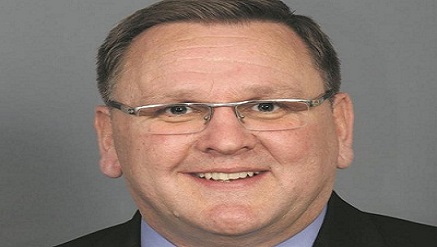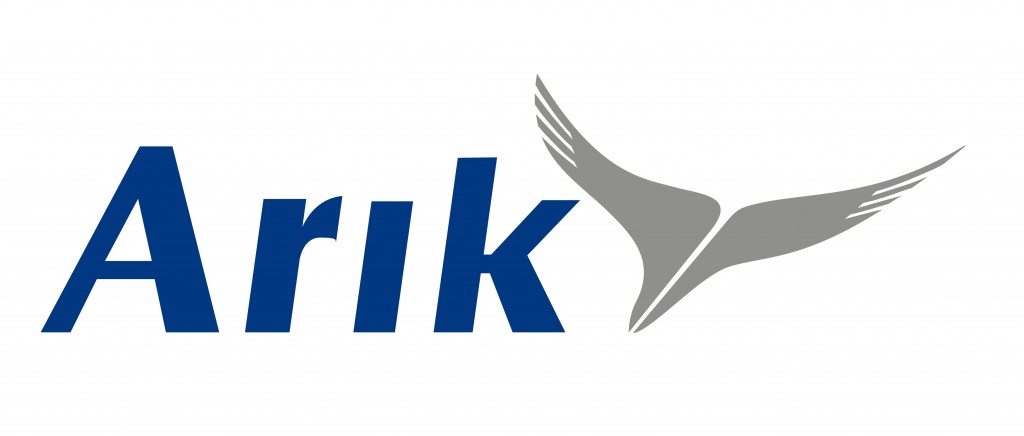News
DHL Tasks Local Businesses on Leveraging Africa’s Rising Opportunities

Due to Africa being home to seven of the 10 fastest growing economies in the world1, the continent is fast becoming top of mind for many global businesses.
According to Sumesh Rahavendra, head of Marketing for DHL Express SSA, while the growing interest from global parties is beneficial for much-needed foreign investment, local businesses should also be encouraged to capitalize on the continent’s increasing economic growth.
The Ernst & Young 2014 Africa Attractiveness survey last week revealed that Africa has become the second-most attractive investment destination in the world, up from the third-from-last position in 2011.
In 2013, Africa’s share of global foreign direct investment (FDI) projects reached 5.7%, its highest level in a decade.
Rahavendra said, “The rise of Africa has been well documented over the past decade and has now become one of the biggest frontiers for trade and investment.” He points to recent figures by the International Monetary Fund (IMF), which also tell the story of Africa rising. Its latest Regional Economic Outlook: Sub-Saharan Africa (SSA) April 2014, revealed that real GDP growth in SSA is forecasted at 5.4% this year.
He added that this overall economic growth forecast is surpassed by many of the African countries prospects, especially low-incomes states, such as Rwanda and Sierra Leone, which are projected to grow by 7.5% and 13.9%.”
The 2014 Africa Attractiveness survey revealed that South Africa remained the largest destination for FDI projects, however, countries such as Ghana, Nigeria, Kenya, Mozambique, Tanzania and Uganda, have become more prominent on investor’s radars.
For example, FDI projects in Mozambique grew at a compound annual growth rate (CAGR) in excess of 30% since 2007.
In 2013, Mozambique received 33 FDI projects, up 32% from the previous year. While coal deposits and offshore gas fields attract investors, infrastructure projects are another focus, with the country currently having more than US$32 billion worth of active infrastructure projects.
A key focus area of these projects include developing road and rail transport networks to link the country’s coal reserves to the main corridors, as well as expanding port facilities.
Although FDI projects into Angola declined in 2013, the country remains the fourth-largest recipient of FDI.
The country is focused on increasing its infrastructure, especially airports and ports, to meet its aim of US$4b in non-oil investments by 2017.
Rahavendra also said that the discussion of foreign investment often overlooks the real potential of Africa, namely its people and businesses. “Many local entrepreneurs and small and medium enterprises (SMEs) have so much to offer to their respective countries, both in terms of services and sustained economic growth.”
As economies grow in Africa, as will the demand for its services, and this demand will offer numerous opportunities to inspired entrepreneurs.
“As household expenditure has increased over the years, resulting in rising consumer demand, there is a definite opportunity for SMEs to fill the gaps which are not being serviced by large global companies. We have over 25,000 SMEs who work with us across Africa and every day we work on understanding their needs better and help them to go global”.
The express company is doing significant work in increasing connectivity for SMEs, helping them to understand the paperwork, legislation and expertise needed to grow beyond borders.
“We are increasingly noticing retail and telecommunication customers expanding on the continent and local entrepreneurs should be encouraged to also capitalize on the continent’s growing markets, similar to the approach by international organizations. We as DHL Express have increased our retail presence in Sub Saharan Africa to just over 2600 outlets. Other sectors where we have seen growth include fast moving consumer goods, health care products, retail, food, telecommunications and other consumer related necessities.”
Rahavendra added that the continent’s competitiveness can be hindered in terms of growing the flow of goods within the continent itself.
“With underdeveloped road and rail networks, and around 12% of cities served by just one flight per week, infrastructure and connectivity are among the most pressing challenges. Investments in infrastructure and our network remain a key focus area for us in 2014 as we understand that in order to achieve growth, we need to ensure that we have the best in class facilities. The ongoing upgrades to our network operations assist us in meeting these expectations while maintaining our excellent service standard”.
“Extensive infrastructure is critical for ensuring the effective functioning of an economy and a well-developed network is vital for enabling local and global business to transport their goods and services to the market securely and timely. As a logistics service provider, DHL remains committed to not only connecting others to one of the world’s biggest frontiers, but to making the rest of the world the next frontier for Africa,” Rahavendra concluded.
News
UK Minister for Africa Visits Nigeria to Deepen Strategic Partnership

The United Kingdom’s Minister for Africa, Lord Collins of Highbury, has concluded a three-day visit to Nigeria, aimed at reinforcing the UK-Nigeria Strategic Partnership.

He reaffirmed the UK Government’s strong commitment to deepening trade and investment ties between the United Kingdom and Nigeria.
During his visit, Lord Collins met with senior Nigerian government officials, business leaders, civil society representatives and United Nations agencies.
These engagements underlined the UK’s long-term drive to support Nigeria’s prosperity and stability while deepening bilateral cooperation for transformative growth across our shared priorities.
A key highlight of the visit was Lord Collin’s bilateral meeting with Nigeria’s Minister of Foreign Affairs, Yusuf Tuggar, in which both parties reaffirmed their unwavering commitment to strengthening economic ties and promoting regional security. The Minister was joined by the UK’s Trade Envoy to Nigeria, Florence Eshalomi MP.
Lord Collins also met with Deputy Speaker of the House of Representatives, Hon. Benjamin Kalu, and discussions focused on opportunities to strengthen engagement between UK’s parliament and Nigeria’s National Assembly and the importance of furthering women’s participation in politics.
Speaking on his visit, the UK Government’s Minister for Africa, Lord Collins said: “Nigeria and the UK share a rich, ambitious relationship: one that is deeply rooted in respect.
“Our Strategic Partnership is at the forefront of this, and my visit has focused on how our countries can continue deepening our cooperation on key issues such as trade and investment to drive economic growth and deliver prosperity for us all.”
The Minister held discussions with United Nations representatives on the ongoing reform of the UN system, its implications for Nigeria and how the reform can effectively support those most in need, particularly in Northeast Nigeria, whilst also contributing to global humanitarian efforts.
Lord Collins also met with civil society leaders to discuss electoral integrity and governance reforms, reinforcing the UK’s commitment to democratic values and community empowerment.
He later visited Nigeria’s Anti-Kidnap Fusion Cell: a key security initiative supported by UK expertise through the National Crime Agency and the Integrated Security Fund, which plays a vital role in enhancing local safety and combating serious crime.
Also commenting on the visit, the British High Commissioner to Nigeria, Dr Richard Montgomery, said: “Driving growth is central to the UK’s foreign and development policy. Lord Collins’ visit to Nigeria underscores the UK’s unwavering commitment to deepening our shared prosperity through expanded trade and investment. We are proud to stand alongside Nigeria as it forges a resilient and dynamic economy.”
This visit underscores the UK’s enduring partnership with Nigeria – built on mutual respect, shared goals, and a vision for a prosperous future for both nations.
News
PalmPay Launches CSR Initiatives to Empower Women, Foster Financial Literacy in Northern Nigeria

In a strategic move to expand financial inclusion in Nigeria, leading mobile banking platform, PalmPay has launched a series of CSR programs across Kano and Kaduna. The CSR initiative named “Passing the Baton” represents the brand’s commitment to passing on knowledge and providing the resources individuals and businesses need to achieve financial independence and drive economic empowerment.

This initiative is a bold move by PalmPay to bridge the opportunity gap in the North by providing financial literacy training and micro-business branding support to 5,000 women-owned businesses in Kano and Kaduna. This strategic initiative reaffirms PalmPay’s commitment to inclusive development and economic empowerment, particularly in underserved regions.
“At PalmPay, we believe that real financial inclusion must be far reaching and cover the grassroots,” said Chika Nwosu, Managing Director of PalmPay. “Our new CSR program is focused on supporting gender equity by equipping women with the knowledge, tools, and visibility they need to thrive as entrepreneurs in their communities.”
Through this initiative, beneficiaries will receive free health insurance, hands-on training workshops, enhanced store branding to boost visibility, and branded merchandise to strengthen their business presence.
The initiative is part of PalmPay’s broader strategy to extend its innovative solutions, expand its footprint in Northern Nigeria, while building sustainable partnerships with local stakeholders for long-term impact.
In a show of support, His Royal Highness, the Emir of Kano, Dr. Muhammadu Sanusi II, has endorsed the initiative, calling on other stakeholders to join forces with PalmPay in ensuring the North benefits fully from the growing digital economy. PalmPay has received commendation from community stakeholders, as the initiative aims to serve as a model for similar projects across other northern states.
As PalmPay continues to scale across Nigeria, the company remains committed to bridging the financial inclusion gap and empowering underserved groups, particularly women and youth, through its innovative solutions and impact initiatives.
News
EFCC Witness Admits Writing Off Arik Air’s $2.3M Debt Amid N76Bn Fraud Trial



 Telecom3 days ago
Telecom3 days agoMTN Nigeria Invests ₦900Bn in 2025 to Boost Network Quality in Lagos & Abuja

 E-Business3 days ago
E-Business3 days agoFirm Reports a 48% Increase in Malicious Packages Threatening Software Supply Chains

 News3 days ago
News3 days agoEFCC Witness Admits Writing Off Arik Air’s $2.3M Debt Amid N76Bn Fraud Trial

 Telecom3 days ago
Telecom3 days agoMTN Nigeria Wins Award for Best Use of Data @MarkHack 4.0 Awards Night

 Telecom2 days ago
Telecom2 days agoGlo, Huawei, Communications Ministry Bring Digital Services to Abuja Village

 News3 days ago
News3 days agoSERAP Urges National Assembly to Reject Tinubu’s $24Bn Loan Request Over Debt Concerns

 E-Financial3 days ago
E-Financial3 days agoSenate Passes Harmonised Report on Tax Reform Bills

 Broadcasting3 days ago
Broadcasting3 days agoThe Rave Revolution: How Gen Z and EDM Are Rewriting Nigeria’s Nightlife


























